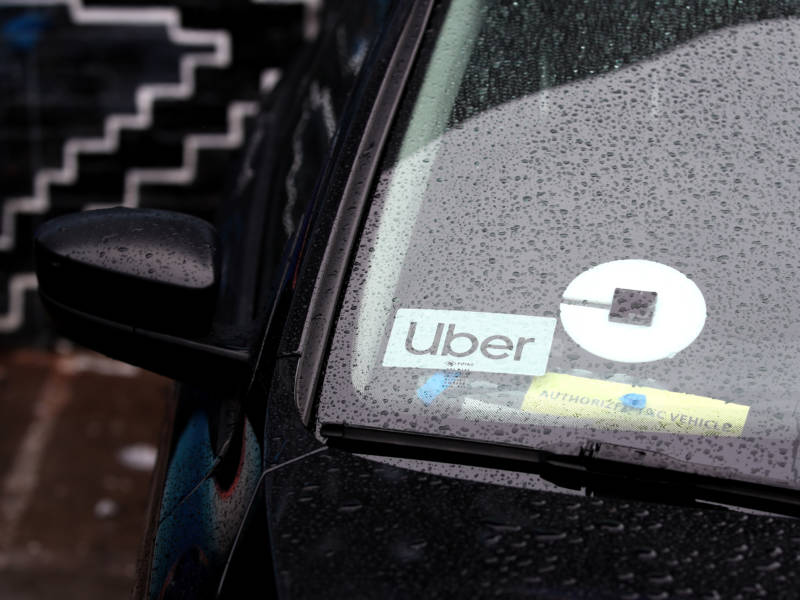Uber has sheer scale on its side, giving it a balance sheet that will let it wait out competitors. And once rivals have dropped out or consolidated, Uber can stop spending so much on discounts and coupons (thus effectively raising prices for users) and start bringing in more money.
Arounian also notes that there's an advantage to being the Uber for everything. If drivers work for multiple Uber platforms — for example, for ride-hailing and for Uber Eats — they can fill a day more efficiently.
"During peak driving times, that driver is picking people up and dropping them off," Arounian says. "Lunchtime kicks in — they're dropping off food. Switch back on during the evening rush hour to drop people off, and then they could do dinner."
That gives Uber an edge over companies that offer just one service. Cut some expenses, find a way to spend less on insurance, eventually roll out self-driving cars, and you may have a recipe for profits, Arounian says.
There's reason to be skeptical. To make this recipe work, Uber has to crush a small army of competitors. And when it comes to self-driving cars, there are huge obstacles, including not just technical challenges but also a maze of regulatory hurdles.
Analysts who believe in Uber's future profits emphasize that they're talking about the long term.
In the meantime, aside from the minor detail that it burns billions of dollars each year, Uber has other challenges.
Drivers have complained about their pay. On Wednesday, drivers went on strike and protested in cities across the United States.
James Hicks was on strike in Los Angeles. He noted that Uber recently cut driver per-mile pay by 25% in that city.
"My main concern is making sure that each and every individual driver makes enough money to put food on the table, to pay the bills," Hicks said, standing at the protest at Los Angeles International Airport.
And some drivers have called to be treated like employees, not contractors, which would hurt Uber financially.
Then there is Uber's dented brand. The company was long famous for openly flouting laws. Its corporate culture was toxic. Women who worked at Uber have reported rampant sexual harassment.
Uber ousted co-founder Travis Kalanick as CEO and replaced him with Dara Khosrowshahi, who has been tasked with cleaning up shop — and, with some of Uber's reputation restored, taking the company public.
As the IPO approaches, Uber has tempered expectations slightly. Lyft's IPO in March is a bit of a cautionary tale.
Uber's smaller ride-sharing rival set an ambitious price for its shares. After an initial pop, Lyft's stock slid dramatically. It has dropped nearly 30% from its IPO price.
As Uber prepares to follow Lyft into the stock market, it's not aiming for a $120 billion valuation, like some analysts had previously floated.
Still, with a total value of $80 billion to $90 billion, this will be the largest IPO in five years.
Copyright 2019 NPR. To see more, visit https://www.npr.org.
9(MDAxOTAwOTE4MDEyMTkxMDAzNjczZDljZA004))

9(MDAxOTAwOTE4MDEyMTkxMDAzNjczZDljZA004))
